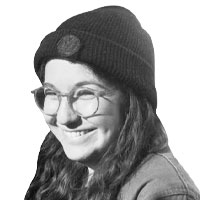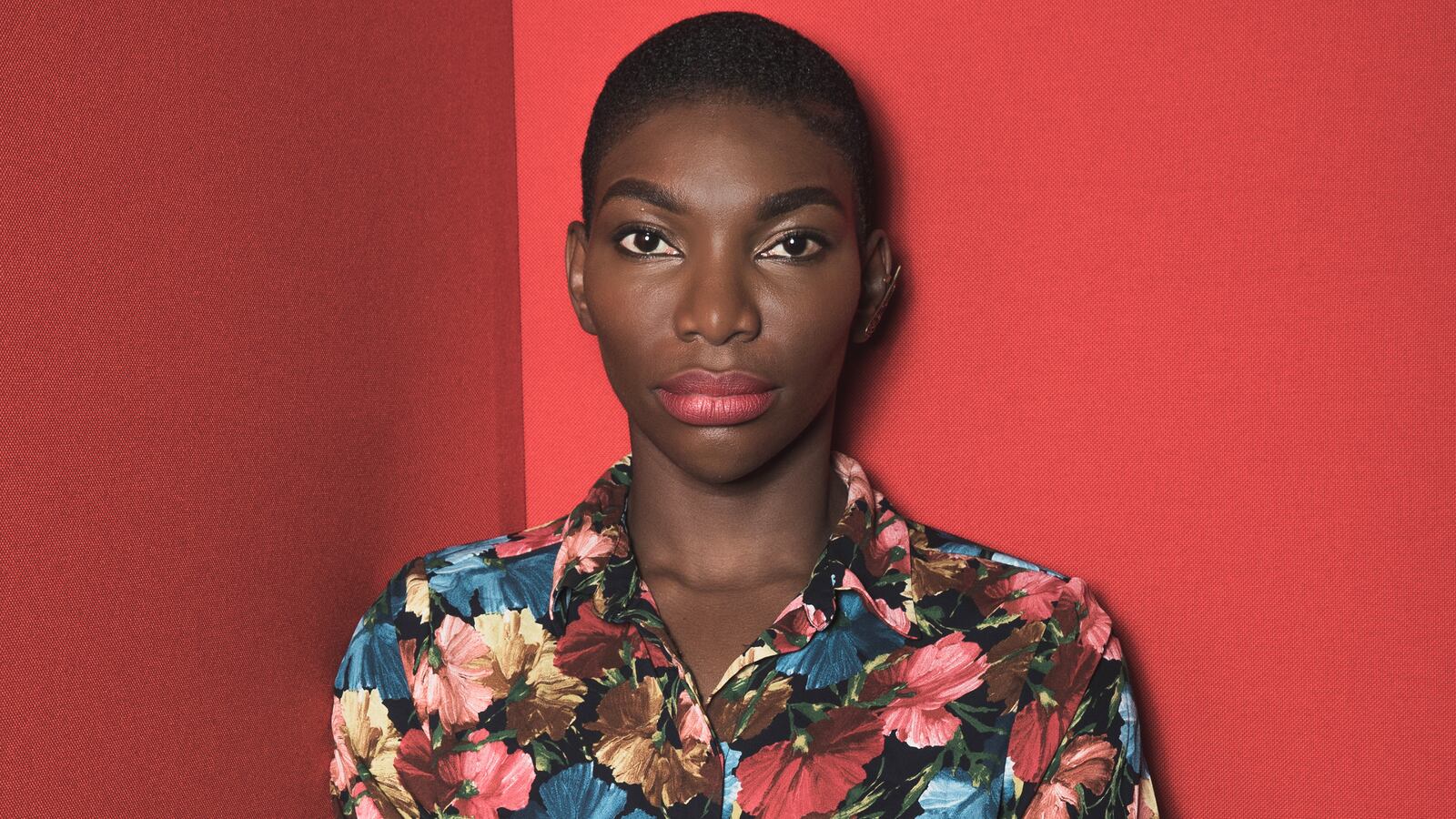“Ex-boyfriends have accused me of giving these, universities have accused me of never attending them, but my relationship with this word has a rebirth,” Michaela Coel writes about the word “lecture” in Misfits: A Personal Manifesto, her first publication.
The book originated as the Edinburgh International Television Festival’s MacTaggart Lecture she gave in 2018. It’s a candid chronicle and a galvanizing cry, flanked by an introduction and epilogue.
Coel is the creator—actress, writer, director—of two series: Chewing Gum (2015-2017, in which the principal character is most keen to lose her virginity) and I May Destroy You (2020, in which the principal character reconstructs a night out during which her drink was spiked and she was sexually assaulted, struggling to piece herself together in the aftermath). The latter series is raw, confrontational, and funny in equal measure; it has garnered her BAFTAs and is currently nominated for nine Primetime Emmy Awards, while Time magazine designated the 33-year-old Coel one of the “100 Most Influential People” last year. Both series are based upon her own experiences.
She begins the MacTaggart Lecture with a John Keats poem, “Ode on Melancholy,” in which the English Romantic beseeches readers, “glut thy sorrow.” Coel abides by this dictum. “Like any other experience I’ve found traumatic, it’s been therapeutic to write about it, and actively twist a narrative of pain into one of hope, and even humor,” she says, capitalizing on what she describes as “my habit… to recount horror with a smile.” Ultimately, she says, “I think transparency helps.”
The lecture—and, thus, the book—is a mix of memoir (“One time, I was passing my main bully in the corridor, one of the older ones that would lock me in the music room”), entertainment industry outrage (“How many other potential artists with stories we want and need have we lost for the sake of financial profit”), comedy (“sleeping… something you didn’t do deeply, or every night, just some nights, like anal”), process notes (“What I am writing doesn’t change, but how I write it changes drastically”) and banality (“I like TV, I like making burritos and I like my friends”). All these elements lead towards her empowered vow: “Death to the habit of compartmentalizing pain and avoiding emotions, death to coping so successfully that I put my ability to process life and to grieve in jeopardy.”
Raised in a 1970s-built social housing estate in London, cloaked-in-plain-sight amid modern corporate skyscrapers and the headquarters of international banks, her trajectory towards cultural recognition and widespread celebration was not an evident one. She was raised by a single mother from Ghana who “discovered a theatre would allow children from low-income families to join their youth workshops—for free. Free was cheaper than childcare.” Young Coel was the sole Black kid, but she loved it. She attended a Catholic school “in which student prostitution wasn’t a shock, but a gorgeous bit of gossip to spread” and qualifies her classmates as “the generation of twelve-year-olds with Nokia 3310s.” She notes she was ignorant of British pillar references, like Fawlty Towers or the Edinburgh Fringe Festival; she rather cites Moesha and Buffy as influences instead. A period of evangelical religiosity transmogrified into a broader love of storytelling (“I still love the character of Jesus,” she notes cheekily).
The term “misfits,” which gives the book its title, “takes on dual notions,” Coel remarks. A misfit may look at life differently, but a misfit may just as readily be someone who is looked at differently: an othering that comes not from being inherently different but being perceived as such. In Western pop culture, the misfit is often side-eyed as an outlier. By Coel’s estimation, a misfit is someone exceptional, in the best sense of the term. She describes her own circle, the people who shaped her, as “a huge gang of commercially unattractive, beautiful misfits, who found the mainstream world unattractive.” She became the first Black girl her London drama school had selected in five years, and had to weather the isolating discomforts of being a minority in both race and social class.
She nonetheless embraced her own story without conformity or compromise, which always served her creatively—and turned her into an activist fighting for one’s own validity. “Of late, channels, production companies and online streaming services have found themselves scrabbling for misfits… aware they might be very profitable,” Coel notes. This grasping for previously overlooked perspectives, which—suddenly!—resonate with the cultural moment, is not what she was trained to anticipate or even have access to. “We were told at [drama] school, if we wanted to pursue this, we should be ‘yes’ people, and expect to be poor for the rest of our lives,” she recalls.
Coel refused to capitulate to a system that excluded her. Representation and authenticity are important to her not in a “woke discourse” way, but in a “this is my truth” way that she wears at once casually and categorically. “I wondered why, if 95 percent of us didn’t fit something, we would encourage each other to aspire to it, to emulate it?” Instead, she implores: “As they enlighten you, with TV stories you can’t film or write without them, enlighten them.” Because the alternative, she points out, is grim. “Without a healthy writing team, and a great story, what do you have on the screen to inspire misfits? Oh, Love Island.” She cites several major American series canceled by networks that were, in recent years, championed by fans actively enough to be revived: Brooklyn Nine-Nine, Sense8, Arrested Development. “This confirms that a medium outside of television is beginning to take control of it,” she says brightly.
On being asked to give this prestigious lecture, Coel muses: “Having the opportunity to speak, to be heard uninterrupted for that length of time (roughly one hour), certainly altered me as a person. It’s a privilege; who gets to go that long without the threat of a challenge or retort?” The same can be said of creating a series honoring one individual’s vision. Misfits, which is a slender text and a quick read, may feel a bit thin for existent fans of the British multi-hyphenate, but it still clarifies Coel as a bold figure who has, and will continue to, clear the way for others and add range to what success can look like on one’s own terms. That’s not nothing in an industry still desperately playing catch-up on diversity, idiosyncrasy, and inclusion.







